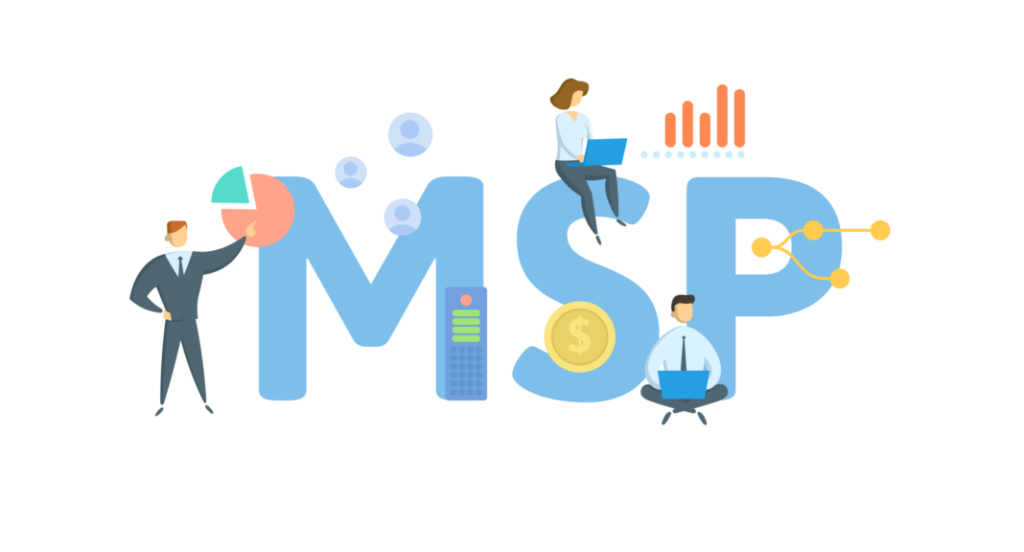In an era where digital operations are integral to the success of nearly every business, maintaining constant IT support isn’t just a luxury—it’s a necessity. This blog explores how Managed Service Providers (MSPs) play a critical role in ensuring businesses remain operational, resilient, and secure around the clock.
Table of Contents
ToggleWho are Managed Service Providers?
Managed Service Providers are companies that manage a business’s IT infrastructure and end-user systems on a proactive basis. By providing 24/7 IT support, they ensure that businesses can focus on their core operations without the distraction or disruption of IT-related issues. MSPs leverage their extensive knowledge and advanced technology to monitor, manage, and resolve IT problems, often before the client is even aware of them.
Importance of Business Continuity
Business continuity in today’s market is non-negotiable. IT disruptions can halt operations, lead to data loss, compromise customer relations, and result in significant financial losses. MSPs ensure that critical systems are always running and that any potential IT issues are swiftly addressed. The continuous monitoring and maintenance provided by MSPs are key to minimizing downtime and maintaining a seamless operational flow, thus safeguarding the business’s reputation and revenue streams.
Services Offered by MSPs
MSPs deliver a comprehensive range of IT services that cover the entirety of a business’s technology needs:
- Proactive Monitoring and Management: Regularly scanning systems to detect irregularities or potential issues to prevent downtime.
- Security Management: Implementing robust security measures, including firewalls, anti-virus software, and intrusion detection systems to protect sensitive data.
- Data Backup and Recovery: Regular, automated backups of data and efficient recovery solutions to prevent data loss in the event of hardware failure, cyber-attacks, or natural disasters.
- Software and Hardware Management: Managing the deployment, maintenance, and updating of software and hardware, ensuring that all technological resources are current and fully functional.
- End-user Support and Helpdesk: Providing a 24/7 helpdesk to resolve technical issues quickly and efficiently, ensuring that employees remain productive and operational challenges are minimized.
Regulatory Compliance
Managed Service Providers play a crucial role in helping businesses adhere to stringent industry regulations and standards such as GDPR, HIPAA, or PCI DSS. Compliance is critical in avoiding heavy fines and maintaining customer trust, especially for businesses handling sensitive data. They ensure that:
Data Protection Practices: Implementing advanced security measures such as encryption, firewalls, and multi-factor authentication to protect sensitive data.
Regular Audits: Conducting regular security audits and compliance assessments to identify and rectify any vulnerabilities or non-compliance issues.
Continuous Updates: Keeping software and systems updated to comply with the latest regulatory requirements, ensuring that security and operational standards are always met.
Disaster Recovery Planning
Disasters, whether natural, technological, or caused by human error, can significantly disrupt business operations. MSPs assist in crafting and implementing effective disaster recovery plans that minimize downtime and ensure quick restoration of services. Key contributions include:
Risk Assessment and Planning: Evaluating potential risks and developing tailored disaster recovery strategies that align with business priorities and needs.
Data Backup Solutions: Implementing robust data backup protocols in multiple locations (both on-premises and in the cloud) to ensure data integrity and availability.
Regular Testing: Conducting regular drills to test the effectiveness of the disaster recovery plans, making adjustments as needed to handle potential real-world scenarios effectively.
Remote Work Support
With the increasing trend towards remote work, MSPs are essential in facilitating a seamless transition and ongoing support for remote work environments. They ensure that employees can work effectively from anywhere by:
Remote Access Solutions: Providing secure and reliable remote access to company networks and applications through VPNs and other remote access technologies.
Virtual Desktop Infrastructure (VDI): Implementing VDI solutions that allow employees to access a desktop environment on a remote server, maintaining workflow continuity regardless of physical location.
Collaboration Tools: Setting up and managing tools such as video conferencing, instant messaging, and project management software to enhance communication and collaboration among distributed teams.
Customization and Scalability
Each business has unique IT requirements and growth trajectories, making customization and scalability critical features of MSP services. MSPs address this by:
Tailored Services: Offering customizable service packages that can be tailored to the specific needs of the business, whether it’s scaling up operations, integrating new technologies, or expanding into new markets.
Flexible Resource Allocation: Adjusting resource allocation based on demand, allowing businesses to scale services up or down as required without significant capital investment or long-term commitments.
Growth Support: Providing the infrastructure and technical support needed to handle growth, from additional server capacity to advanced software solutions.
Proactive Maintenance and Monitoring
Proactive maintenance and monitoring are hallmarks of MSP services, designed to identify and resolve issues before they cause significant disruption. MSPs provide:
24/7 Monitoring: Continuously monitoring IT systems and infrastructure to detect and address anomalies, performance issues, or security threats immediately.
Preventive Maintenance: Regularly updating and maintaining IT systems to prevent failures and extend their lifespan, which includes patch management, hardware checks, and performance optimization.
Issue Resolution: Quickly addressing issues as they are identified, often remotely, ensuring minimal impact on business operations and reducing the need for costly repairs or downtime.
Benefits of MSPs

Partnering with an MSP offers several advantages:
Proactive IT Management
Anticipating and resolving IT issues before they disrupt business operations.
Cost-Effective Solutions
Streamlining operations to minimize downtime and lower overall IT expenses.
Customized IT Strategies
Tailoring IT solutions to align with specific business goals and requirements.
Enhanced Security
Protecting businesses against cyber threats and ensuring data integrity as an MSSP.
Access To Expertise
Accessing extensive knowledge in cutting-edge IT solutions through the MSP.
Scalable IT Infrastructure
Adapting IT infrastructure to accommodate business growth and evolving technology needs.
Focus On Core Business
Allowing businesses to focus on core competencies by outsourcing IT needs to an MSP.
Partnering with PyramidBITS as your MSP enables you to leverage these benefits and ensure seamless IT operations while focusing on driving your business forward.
Best Practices When Choosing an MSP
Selecting the right MSP is crucial for a successful partnership:
1. Define Your Requirements: Clearly understand what services your business needs, whether it’s specific to cybersecurity, cloud management, or end-user support.
2. Service Level Agreements (SLAs): Assess the SLA provided by the MSP to ensure it meets your business’s downtime tolerance and response time requirements.
3. Vendor Reputation and Reliability: Check the MSP’s track record, customer reviews, and testimonials to gauge their reliability and effectiveness.
4. Compatibility: Ensure the MSP’s tools, technologies, and practices align with your business’s existing IT environment.
Future Trends in MSP Services
The MSP landscape is continually evolving with technological advancements:
- Cloud-Based Solutions: More MSPs are offering cloud services, providing businesses with cost-effective, scalable, and flexible IT infrastructure.
- Artificial Intelligence (AI): AI is being integrated to enhance the efficiency of IT operations, from predictive maintenance to automated customer service.
- Proactive Cybersecurity Measures: As cyber threats evolve, MSPs are focusing on proactive strategies, such as threat intelligence and behavioral analytics, to protect client systems.
Managed Service Providers are indispensable partners for businesses aiming to achieve high operational efficiency and robust IT security. By leveraging the expertise and advanced technology offered by MSPs, businesses can ensure continuous operations, safeguard vital data, and adapt to the digital demands of today’s market. In an increasingly connected and digitally dependent world, the role of MSPs in supporting business continuity and growth cannot be overstated.




